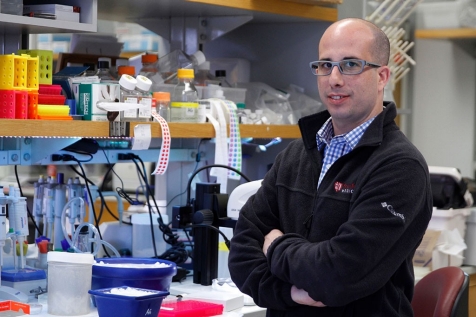Researchers connect ALS hallmark to gene
By Hanae Armitage
Scientists who study amyotrophic lateral sclerosis know there are certain telltale features of the disease, and they occasionally find suspicious genes that seem to be connected to the development of ALS — but the two rarely align.
Now, a study led by researchers at Stanford Medicine and the Mayo Clinic has confirmed a connection between ALS’s most prominent molecular characteristic, a type of protein aggregate in the brain, and a gene that’s long been thought to contribute to the disease.
“We know that in about 98% of ALS cases, this erroneous protein aggregation forms,” said Aaron Gitler, PhD, a Stanford Medicine professor of genetics. “And past genetic studies show that there’s a gene, UNC13A, that’s obviously connected to ALS. It’s on everyone’s radar, but no one knows how it contributes to the disease. This finding connects the two — the most common pathology with one of the most common genetic risk factors.”
